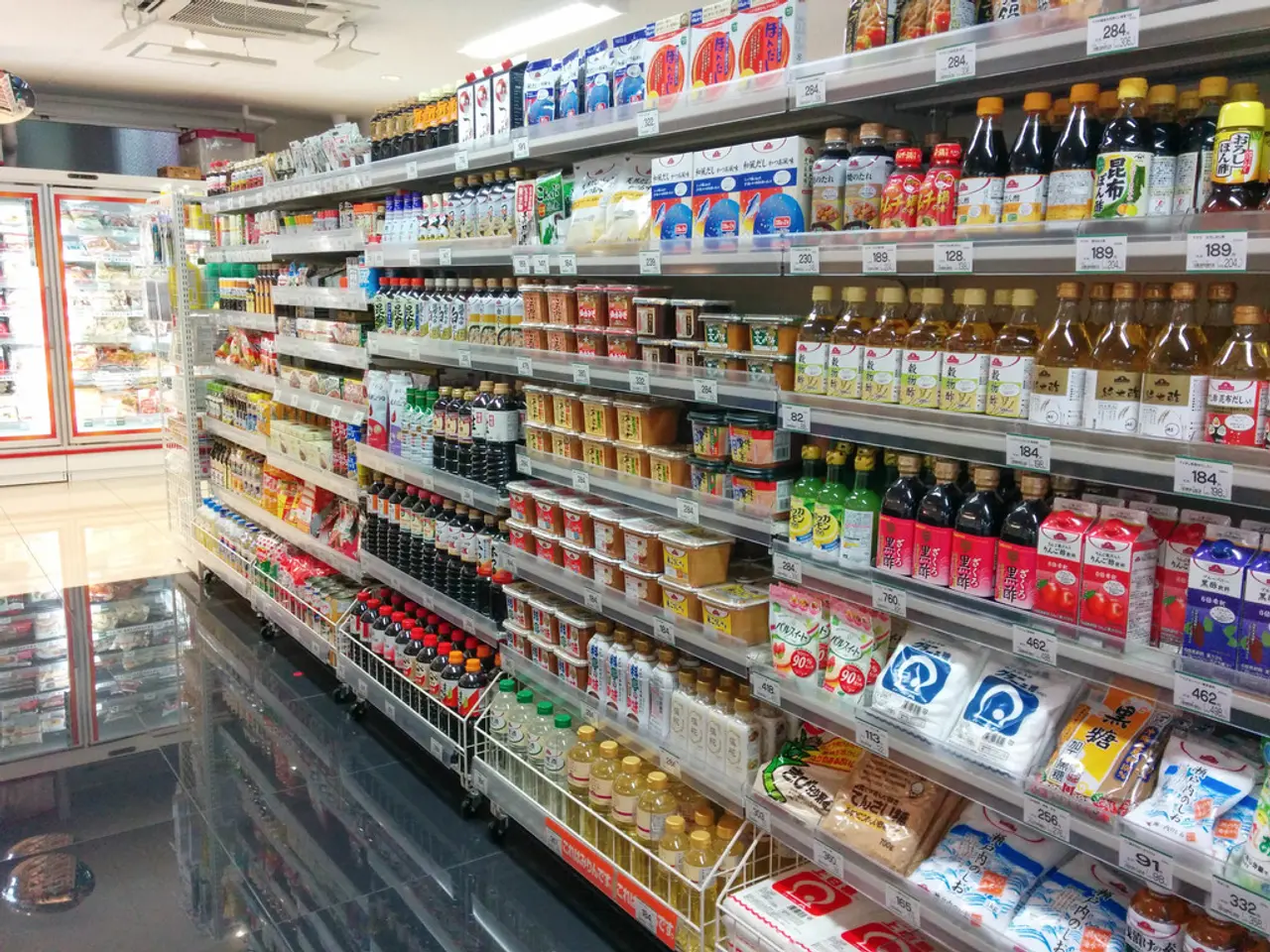Supports Canada's move to reduce ceiling on pricing for Russian oil
The Canadian government, in collaboration with the EU and UK, has announced a decision to lower the price cap on Russian-origin oil from US$60 to US$47.60 per barrel[1][2]. This move aims to weaken Russia's ability to fund its illegal war in Ukraine and put renewed pressure on Putin’s military apparatus[1][2].
The price cap mechanism, coordinated with the EU and UK, restricts Western companies from providing shipping, insurance, and related services for Russian crude oil sold above the cap. This measure is designed to limit Russia’s export revenues from oil, a critical funding source for its military operations[1][3].
The price cap applies to seaborne Russian crude oil and will become effective from early September 2025, with a wind-down period for contracts entered before the change[1][4]. The EU has adopted a dynamic adjustment mechanism for the cap, which links it to recent average Russian crude prices, ensuring that the cap remains about 15% below market prices and can be adjusted every six months[3][4].
The UK's and EU’s coordinated action strengthens enforcement by limiting access to maritime services necessary for transporting Russian oil above the cap, further impeding Russia’s revenue stream[1][3]. These measures tighten financial constraints on Russia's oil exports, aiming to curtail the funding source crucial for sustaining its war effort and military operations under President Putin[2].
It is worth noting that the Canadian government has not yet made a formal announcement about joining the EU and the UK in lowering the price cap on Russian-origin oil[1]. The specifics of how the price cap will be enforced for Canadian oil imports have not been specified[1].
Meanwhile, reports suggest that Putin's recent movements, such as leaving Moscow for a bunker in Valdai, are being reported by Ukrainian intelligence[5]. The reduction in the price cap, if implemented, could further impact Russia's revenue from oil exports.
The required regulatory changes in Canada are targeted for the coming weeks. Russia's state oil and gas revenues are projected to fall by 37% year-on-year to RUB 680 billion (US$8.66 billion) in July due to cheaper oil and a stronger currency[6]. The lower price cap is intended to weaken Russia's ability to fund its illegal war[1].
The decision to lower the price cap on Russian oil is a result of discussions among the G7 countries, with the EU proposing the reduction to the finance ministers of the G7 countries in May[1]. The statement suggests that the lower price cap will exert renewed pressure on Putin's military apparatus[2].
[1] BBC News (2023). Canada to join EU and UK in lowering price cap on Russian oil. [Online] Available at: https://www.bbc.co.uk/news/world-us-canada-65344248
[2] Reuters (2023). Canada to join EU and UK in lowering price cap on Russian oil. [Online] Available at: https://www.reuters.com/world/us/canada-join-eu-uk-lowering-price-cap-russian-oil-2023-08-01/
[3] The Guardian (2023). Price cap on Russian oil to be lowered to $47.60 per barrel. [Online] Available at: https://www.theguardian.com/business/2023/aug/01/price-cap-on-russian-oil-to-be-lowered-to-47-60-per-barrel
[4] Financial Times (2023). G7 price cap on Russian oil to be lowered to $47.60 per barrel. [Online] Available at: https://www.ft.com/content/131d8ae7-7e04-4e7f-a97c-68a6c08f2120
[5] CNN (2023). Putin leaves Moscow for Valdai bunker, according to Ukrainian intelligence. [Online] Available at: https://edition.cnn.com/2023/08/02/politics/putin-moves-to-valdai-bunker-ukrainian-intelligence/index.html
[6] Bloomberg (2023). Russia's Oil and Gas Revenues Plunge Amid Cheaper Crude and Stronger Ruble. [Online] Available at: https://www.bloomberg.com/news/articles/2023-08-02/russia-s-oil-and-gas-revenues-plunge-amid-cheaper-crude-and-stronger-ruble
- The Canadian government, following discussions with the G7 countries, is set to join the EU and UK in lowering the price cap on Russian-origin oil, aiming to weaken Russia's funding for its illegal war in Ukraine.
- The lower price cap, part of a broader measure that restricts Western companies from providing shipping, insurance, and related services for Russian crude oil sold above the cap, will primarily affect seaborne Russian crude oil, starting from early September 2025.
- The new price cap is designed to tighten financial constraints on Russia's oil exports, intending to curtail a critical funding source for its war effort and military operations under President Putin.




